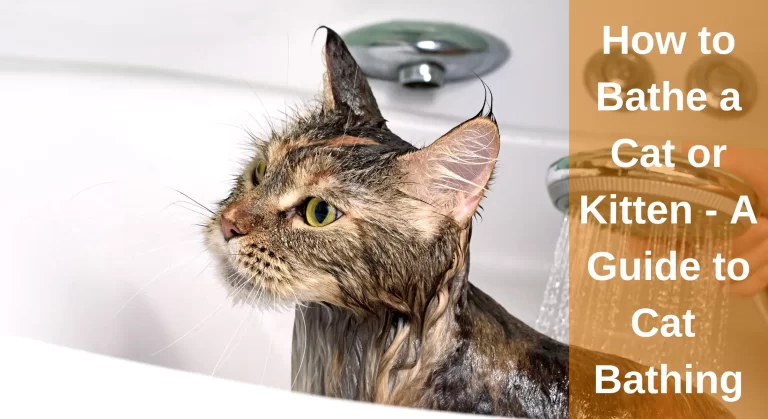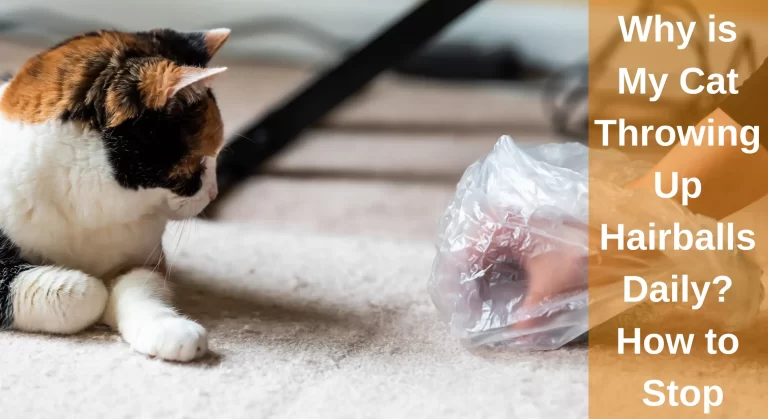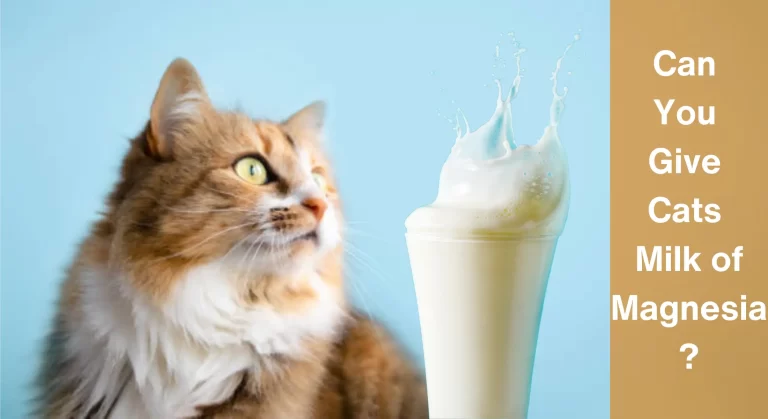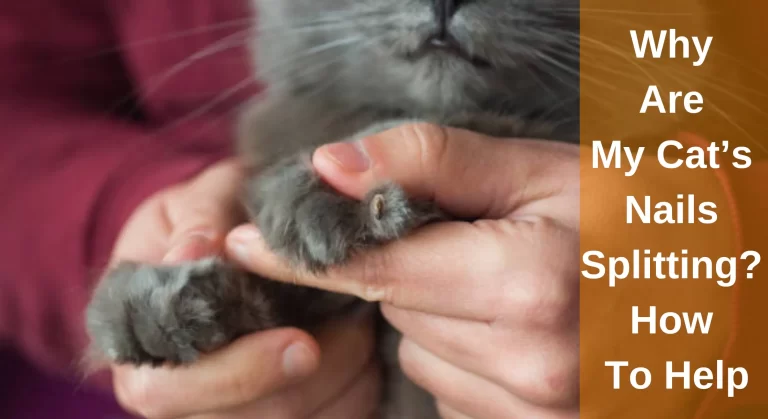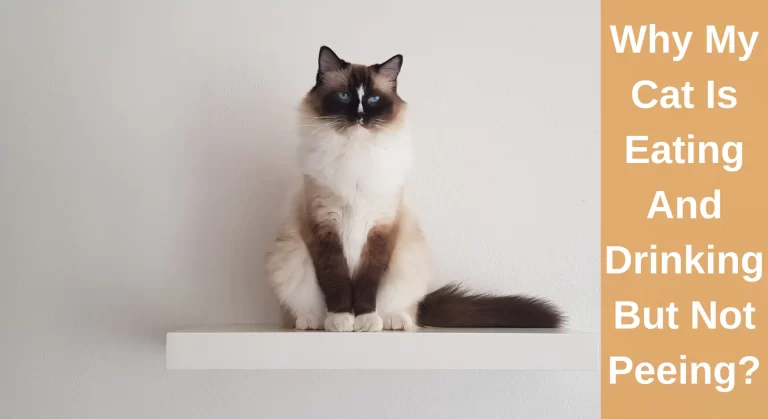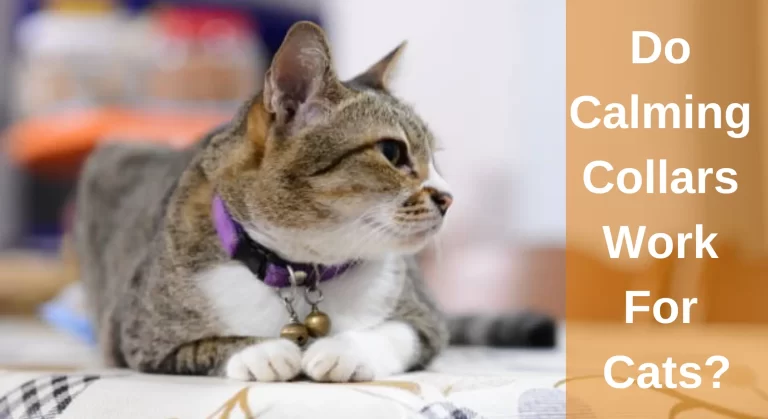My Cat Can’t Meow Just Squeaks! [Answered]
There are many inaccurate stereotypes about cats that people believe in. Be it that cats love and drink milk or have a distinctive meow sound while vocalizing. It’s no wonder that we expect our felines to meow as expected. However, your cat might be different. It might squeak, grunt, chirp, or not make any noise at all. Or you might have noticed that your cat was meowing fine but is now suddenly squeaking. Naturally, you may be worried about why my cat can’t meow just squeaks
If your cat is squeaking instead of meowing, it could be due to a problem with its vocal cords. Other possible causes include respiratory infections, allergies, or congenital defects. However, if your cat has always had a unique way of speaking, there is nothing to worry about.
This article is all about why your cat has a distinctive voice, whether you should worry, and when to see a vet.

Understanding Cat Vocalizations
Cats communicate with an array of vocalizations, including purrs, meows, and growls. Meowing is the most common way cats communicate with their owners, signaling hunger, affection or the need for attention.
However, some cats make a different sound that’s not a typical meow. They may emit a high-pitched squeak or a low-pitched croak instead.
Why Do Cats Meow?
Cats meow to get their owner’s attention for food, water, playtime, and other needs. In fact, it is hypothesized that cats have picked up the meowing trait from humans around them and other domestic cats.
They have modified their sound to match a frequency that can get their owner’s attention, as it is noticed that felines communicate with each other through growling, hissing, or other sounds, and hardly through meowing.
So there really is nothing to worry about if your furry friend prefers to vocalize in a non-traditional manner, as long as it communicates effectively and has no other accompanying symptoms.
Why Does My Cat Squeak Instead of Meow?
This is not a problem if your cat primarily squeaks since birth. However, the situation is a bit different if your feline was meowing perfectly fine and is now suddenly squeaking instead. Below are some reasons why some cats squeak instead of meow:
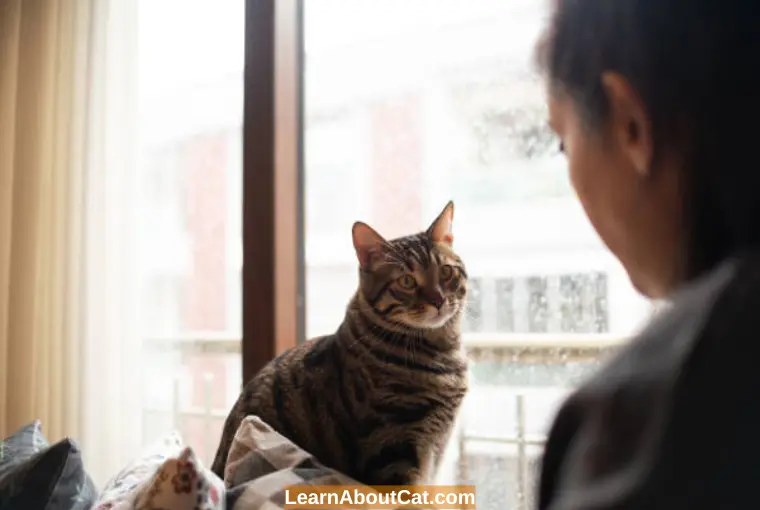
1. Birth Defects
Cats produce sounds from their vocal cords located in their neck. If your feline has been squeaking since birth, it is possible its vocal cords were not properly formed in the womb.
These oddly shaped, insufficient vocal cords make an incomplete squeak when your cat tries to vocalize. By visiting the vet, you can get this congenital disability confirmed. Fortunately, it is nothing to worry about. Besides your cat’s unique sound, it will be a healthy cat and live a full life.
Some cat breeds, such as the Siamese or the Oriental Shorthair, are more vocal than others. They may have a higher-pitched meow or make other sounds, such as chirping or trilling.
If your cat belongs to one of these breeds, it’s possible that the squeaking sound they make is just a variation of their typical vocalization.
2. Stunted Vocal Cords
As baby cats grow, their internal organs grow proportionally. If for any reason, their vocal cords are damaged when they are young, they stop growing according to your cat’s size. This can cause a high-pitched squeak instead of the usual meow, so handling tiny kittens properly is vital.
Vocal cords can be damaged by improper handling when they are kittens. This is why it is important to be gentle with kittens and educate children on properly handling the kitten.
If a kitten’s neck is squeezed too hard, it can permanently damage vocal cords, and your feline will eventually have a more-than-average squeaky voice.
3. Respiratory Issues
Most commonly respiratory issues are the reason why cats squeak instead of meowing. When your cat has trouble breathing, it may be unable to meow properly
Just like the flu and common cold can make our voice hoarse, upper respiratory infections can alter your feline’s voice, making it sound more high-pitched, squeaky, or raspy.
Various factors can contribute to respiratory issues, such as allergies, infections, or even obstructions in the airways.
If you notice that your cat is also coughing, sneezing, or wheezing, it’s important to take them to the vet as soon as possible.
4. Overuse
Just like shouting loudly at concerts makes our voice raspy afterward, a cat’s meow can get weak and raspy after excessive meowing. This is because overstraining of the vocal cords causes fatigue and temporary swelling, changing the quality of sound produced.
Vocal cord strain is similar to hoarseness in humans, where the voice becomes raspy and weak. Over time, this can lead to inflammation and scarring of the vocal cords, making it difficult for a cat to produce a meow.
Additionally, cats that meow excessively may be more prone to developing polyps, which are noncancerous growths that can affect the vocal cords and lead to a loss of voice.
5. Dental Problems
Another common cause of squeaking in cats is dental problems. If your cat has dental issues such as tooth decay or gum disease, it can be painful for them to meow. In some cases, cats may also develop ulcers or sores in their mouths, which can make it difficult for them to meow normally.
It’s important to take your cat to the vet if you suspect that it has dental problems.
6. Disease and Infections
If your cat starts squeaking out of the blue, it may be suffering from a disease or infection. Given below are some conditions that can affect its voice:
- Hyperthyroidism: The thyroid gland is in the throat, right before your cat’s vocal cords. In hyperthyroidism, the thyroid gland increases in size, compressing the vocal cords. This can change the tone and quality of your cat’s voice. Some other signs to look out for are hyperactivity, weight loss, increased appetite and thirst, and increased vocalization.
- Laryngeal Nerve Damage: When the laryngeal nerve is damaged, the laryngeal muscles are paralyzed, causing a change in your cat’s voice along with difficulty breathing, noisy breathing, and coughing. his can occur due to trauma, surgery, or cancer. Cats with laryngeal nerve damage may have a weak or raspy meow or may be unable to meow at all.
- Polyps: Nasopharyngeal polyps are soft tissue growths that occur along the inner lining of the ear canal. They extend into your cat’s pharynx, causing a change in your feline’s voice and difficulty breathing. These growths can occur due to chronic inflammation or irritation, such as from overuse. Other signs you may notice are pawing at its ear, losing balance, and shaking its head.
If your feline has the above signs and symptoms, a visit to the vet is vital. Your vet will prescribe antibiotics for infection. Hyperthyroidism can be treated by surgery or iodine therapy, and polyps will need surgery as well. All the conditions above are treatable, and your feline should be meowing like normal in no time.
7. Injury to the Vocal Cords
Your cat’s voice could have suddenly changed because it got caught in barbed wires while exploring or got into a fight with another animal, causing severe throat injury and damaging the vocal cords. You will need to take your cat to the vet in an emergency for prompt treatment of the injuries.
Injury to the vocal cords can also occur due to trauma, such as from a fall or a car accident. This can cause scarring and inflammation, making it difficult for a cat to produce meow. Additionally, cats that have undergone surgery or intubation may experience vocal cord injury as a result of the procedure.
8. Starvation or Dehydration
Cats make a lot of fuss if they’re hungry. However, if they are at the point of starvation, which is mainly encountered in stray cats, they are so drained of energy that they let out a weak squeak instead.
The same applies to a feline who has not had water for a long time. The dried-out vocal cords and dehydrated, weakened state prevents the cat from letting out full-on meows, and it will have a raspy voice instead.
Hopefully, if you rescue a starved stray, feeding it and allowing it to rest should bring its energy levels and voice back to normal.
It is important to provide a balanced and nutritious diet for cats and to make sure they have access to clean water at all times.
9. Attention-Seeking Behavior
Cats are attention-seekers and may use their vocalizations to communicate their needs to their owners. If your cat only squeaks when they want something, it could be a sign of attention-seeking behavior.
Felines constantly meow when distressed or trapped, trying to get their owner’s attention. To prevent this from happening, ensure their needs are timely met, and there are no places in the house they can accidentally lock themselves into.
10. Aging
A cat’s vocalizations may change as it ages. This is because their vocal cords and larynx may become weaker over time. If your senior cat is squeaking instead of meowing, it may simply be due to the aging process.
11. Emotional Distress
Cats are sensitive creatures, and they can be easily stressed or upset. If your cat is squeaking instead of meowing it could indicate emotional distress. This could be due to a variety of factors, such as changes in their environment, the introduction of a new pet, or even separation anxiety.
If you suspect that your cat is experiencing emotional distress, it’s important to address the underlying issue and provide them with plenty of love and comfort.
12. Have not been around Humans
Cats who have not been around humans never had to learn to meow. If it was around other felines, it is possible it never refined its voice, as communication was never a problem with its mates. If you just adopted a feral cat, it will eventually refine its voice to the typical domestic cat meow.
Meowing is a learned behavior, and cats who have not been around humans may not develop the ability to meow as effectively as those who have. There is usually no need to worry about this and no need for treatment in the majority of cases
Should I Worry That My Cat Can’t Meow, Just Squeaks?
If your cat can’t meow and is only squeaking, it’s natural to be concerned. Meowing is a primary means of communication for cats, and a change in vocalizations can indicate an underlying issue.
However, occasional squeaking is normal, and not all cats are vocal. If your cat has always squeaked instead of meowing, it may have a unique vocalization style or breed-specific trait.

On the other hand, if your feline was originally meowing and is now squeaking or has the following symptoms, it is best to speak to your vet:
- Coughing
- Difficulty breathing or open-mouth breathing
- Sneezing
- Nasal discharge
- Weight loss
- Loss of appetite
- Visible wounds and bruises
- Behavioural changes like aggression
- Sudden weakness and lethargy
Veterinary care is essential if your cat cannot meow due to any of the issues listed above. Your vet can perform a physical exam, conduct diagnostic tests, and recommend appropriate treatment or management options. In some cases, your vet may prescribe medication or recommend changes in diet or lifestyle to help your cat recover.
What to Do If Your Cat Can’t Meow?
If your cat can’t meow or is making unusual sounds, there are several things you can do to help them:
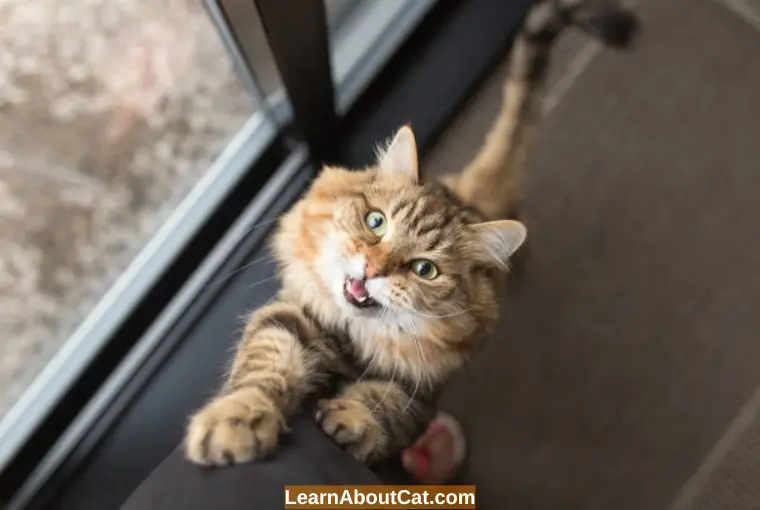
1. Schedule a Vet Appointment
The first step is to schedule an appointment with your veterinarian. They can examine your cat and determine if there’s an underlying health issue that needs treatment. Depending on the diagnosis, they may prescribe medication or recommend a change in diet or lifestyle to help your cat recover.
2. Monitor Your Cat’s Behavior and Health
In the meantime, keep an eye on your cat’s health and behavior while you wait for your vet appointment. Note any changes in appetite, energy levels, or bathroom habits. If your cat seems to be in distress, seek emergency veterinary care right away.
3. Provide a Comfortable Environment
Create a comfortable and stress-free environment for your cat by providing them with a quiet and safe place to rest. Make sure they have access to food, water, and a clean litter box. Consider playing soothing music or using pheromone sprays to help calm them down.
4. Train Your Cat to Meow
If your cat is healthy but still can’t meow, you can try to train them to meow using positive reinforcement techniques. Reward them with treats or praise when they make the desired vocalization. With time and patience, your cat may learn to meow again.
5. Be Patient
Lastly, you need to be patient as your cat adjusts to any changes in its voice. Squeaking instead of meowing may be a temporary issue, or it may be a permanent change. Either way, providing your cat with love and comfort can go a long way in helping them feel more comfortable.
Will My Cat Ever Learn How to Meow Properly?
Yes, it is possible for your cat to learn to meow. If you have adopted a feral cat, it will learn how to meow properly after being around humans for a few weeks. The same is true for a kitten of around 3 to 6 months old.
To train your cat to meow, you can start by paying attention to its current vocalizations. When your cat makes a sound, respond to them with a vocalization of your own, such as saying “hello” or “what’s up.” Over time, your cat may start to associate vocalization with interaction and attention.
However, some cats do not have the traditional meow and squeak or are particularly quiet. If that is the case, it is just a unique trait your feline has that you have to accept.
Why Is My Kitten’s Meow Weak? My Kitten Can’t Meow Just Squeaks
There are many reasons behind a weak kitten meow, most of which are nothing to worry about. If you have a litter of kittens, some might be very loud and vocal, whereas others might be quieter.

This comes down to the nature and different personalities these baby felines were born with. It also comes down to the breed. For example, kittens of the Chartreux breed and the Main Coon are quieter than Siamese kittens.
Kittens also have small bodies and developing vocal cords, which is why they make a weak squeaky voice instead of a proper meow.
A weak meow can also indicate your kitten is starving. Kittens need to be fed every two hours in the first few weeks of their lives, so make sure you are not missing any feedings.
Additionally, kittens become quieter as sleep hits them, so it could just mean your kitten is sleepy. Besides, kittens do need around 18-20 hours of sleep, depending on their age.
The other reasons are as above. If associated with nasal discharge, sneezing, or difficulty breathing, your kitten could have an upper respiratory infection or polyps. In this case, you need to get your baby feline checked by the vet.
Intresting Reading: The Ultimate Guide to – How Much to Feed a Kitten?
Is It Normal For A Cat To Never Meow? / Is It Possible For A Cat Not To Meow?
Some cats never meow and instead grunt, squeak, trill, chirp, or even make quacking noises. This is completely normal.

Yes, it’s possible for some cats not to meow and instead grunt, squeak, trill, chirp, or even make quacking noises. Meowing is a natural behavior for cats, some may not meow as frequently as others. Some cats may communicate through other means, such as body language, facial expressions, and other sounds, instead of vocalization.
Cats, like people, have a variety of personalities, and the way they vocalize reflects their unique character. Therefore, your cat not having the stereotypical “meow” is not an issue.
However, a cat that has previously meowed but suddenly stops may indicate an underlying health issue and should be evaluated by a veterinarian.
Is It Possible to Stop Your Cat from Squeaking by Talking to It?
Technically speaking, frequently talking to an adopted feral cat or a kitten can help it develop its communication skills. So if your feline is squeaking, it can turn into a normal, lower-pitched meow.
However, some cats will still keep their unique ways of communication no matter how much you interact with them, and that is completely okay.
Frequently Asked Questions
Could a kitten’s squeak develop into a real meow?
For the first 3-6 months, kittens have a high-pitched squeak, but once they reach this age, they develop their voice and find their meow.
Why does my cat try to meow, but nothing comes out?
Your cat’s silent meows are its attempt to communicate with you. It may be trying to say that it needs food, water, or attention, or it may be trying to say it loves you. Cats also do this to get your attention when they are sick.
Do cats squeak when they are excited?
When cats are playing with an engaging toy or smell their favourite food, they can let out a high-pitched chirp or squeak in excitement.
Can stress cause a cat to stop meowing?
Yes, stress can cause changes in a cat’s behavior and vocalizations, including a complete inability to meow.
Can a cat’s meow change over time?
Yes, as cats age, their meows may change or become weaker. Other factors, such as health or stress, can also affect a cat’s vocalizations.
Could improper treatment of a Cat cause it to squeak?
Vocal cords can be damaged by improper handling when they are kittens. This is why it is important to be gentle with kittens and educate children on properly handling the kitten.
If a kitten’s neck is squeezed too hard, it can permanently damage vocal cords, and your feline will eventually have a more-than-average squeaky voice.
Wrap Up!
Contrary to popular belief, cats make different sounds to communicate. In fact, cats hardly communicate with each other by meowing, and it is hypothesized that felines developed the meow as a way to interact with humans and get their attention.
However, if your cat has suddenly lost the ability to meow and is now squeaking, you should take it to the vet, as this points to a medical condition that needs prompt assessment.
Related Posts:
Who is Isabella?
My name is Isabella, and I am a dedicated and knowledgeable cat enthusiast. With years of experience caring for cats and a deep love for felines, I made a mission to help other cat lovers navigate the challenges of cat ownership.

